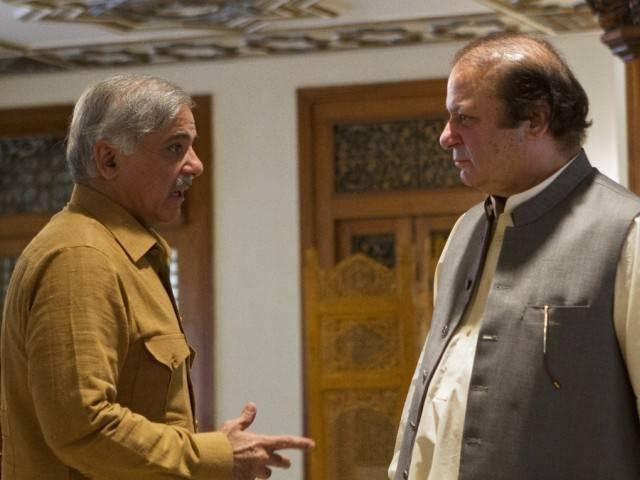What if two had been three?
Dissent note by Justice Khosa suggests sacking PM, investigating Dar, sidelining NAB chief

Dissent note by Justice Khosa suggests sacking PM, investigating Dar, sidelining NAB chief. PHOTO: REUTERS
In the dissent note, Khosa had suggested that the Election Commission of Pakistan notify the disqualification of Nawaz Sharif from being a member of parliament with immediate effect, which would also mean an unceremonious exit from the PM house.
Nawaz survives to see another day as SC orders probe into corruption allegations
It moves on to put the onus on the president to “take necessary steps under the Constitution to ensure the continuation of the democratic process through parliamentary system of government in the country”. This means that, according to the Constitution, the president would have to call an immediate session of the now-headless national assembly to elect a new leader – a prime minister.
Had Justice Khosa ruling been that of the majority, NAB would have been directed to proceed against Nawaz and anyone connected with him with respect to the offences of corruption and corrupt practices under the National Accountability Ordinance. It would also have to refer back to evidence found by the Federal Investigation Agency in connection with its own investigations from 1994 and NAB’s previous investigation into Sharif in 2000, while also referring to a September 1998 report by then-FIA official and current PPP Senator Rehman Malik. The evidence collection would, however, be restricted to the London properties.
Imran, Zardari demand PM Nawaz's resignation
The dissent note also calls for NAB to probe other assets acquired and businesses set up by Nawaz’s children in Pakistan and abroad to determine whether or not the children acted as Benamidars for their father assets and his businesses, and if Nawaz can provide satisfactory accounts for those assets and businesses if he is discovered to be their actual owner.
Significantly, Justice Khosa’s dissent states that the “neutrality and impartiality of NAB Chairman Qamar Zaman Chaudhry has been found by me to be compromised” in the matters of Nawaz, therefore, “he is directed not to exercise any power, authority or function in respect of the matters directed above.”
The CJP has been requested to constitute an implementation bench of the SC in this regard, “and in the interest of doing complete justice, it is ordered that all the powers, authority and functions of the NAB chairman shall henceforth be exercised by the implementation bench,” while NAB officials would have to seek all necessary orders in those matters from the Implementation Bench till Chaudhry completes his current non-extendable term of office. The implementation bench would also monitor investigations into Nawaz and his family.
This essentially constitutes a recommendation of leave until retirement, or worse, suspension till retirement. The latter part would have some overlaps with the functions of the JIT constituted in the majority judgment.
Panama judgment leaves Ishaq Dar in tight spot
Also, Justice Khosa would have wanted NAB to proceed against Ishaq Dar in connection with it’s a 2000 NAB reference which was quashed by the Lahore High Court and reinvestigation against Dar and others was barred, because after quashing of that reference, Dar’s confessional statement would stand revived as an accused person.
The finance minister would thus have been forced to join his brother-in-law the prime minister in that leaky disqualification lifeboat.


















COMMENTS
Comments are moderated and generally will be posted if they are on-topic and not abusive.
For more information, please see our Comments FAQ